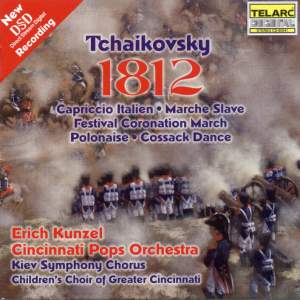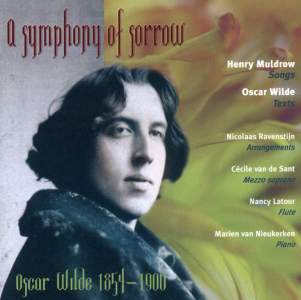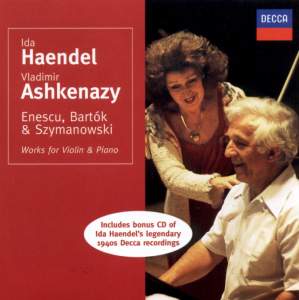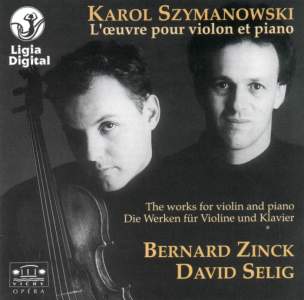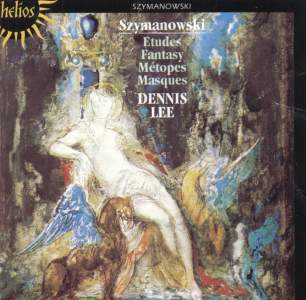Music Reviews
Classical Music - Part 27 - September, 2001
Jason Serinus
Ratings: Extraordinary Good Acceptable Mediocre Poor
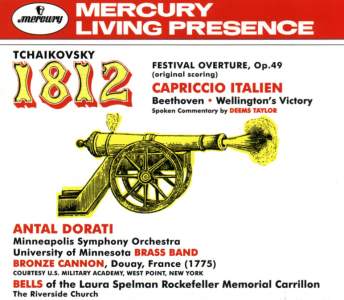
TCHAIKOVSKY - 1812 OVERTURE (NEW DSD RECORDING) - KUNZEL/CINCINATTI POPS ORCHESTRA -TELARC DSC-CD-80541/SACD-60541
Performance:
Sound quality:
For those who cannot get enough Fourth of July fireworks, Telarc's new Tchaikovsky recording employs every possible digital technological advance to showcase the composer's pyrotechnic 1812 Overture. The disc also includes other assorted marches, dances and operatic diversions, some infrequently heard. Though the interpretations fall short of the mark, the recording could blast you so far out of your seat that coming back to earth may carry greater import than musical values.
The label has issued the recording in several versions. The one auditioned for this review, in two-channel stereo, employs Sony's latest DSD (Direct Stream Digital) recording technology to achieve greater veracity of sound. Also available is a hybrid multi-channel SACD (Super Audio CD), payable on all players, which promises even greater realism when heard through state-of-the-art SACD multi-channel players. A multi-channel DVD-Audio disc, capable of delivering 24 bit/96 khz sound, is promised for future release.
All the technological hoopla threatens to get in the way of the music itself. Just in case you may be drawn to this disc because you love or are intrigued by Tchaikovsky's music, a bit of history is in order.
Tchaikovsky wrote the 1812 to celebrate the consecration of the Moscow Cathedral of Christ the Redeemer, built to commemorate the 1812 liberation of the Russians from Napoleon's forces. The score included massive strings and brass, live cannon and peeling bells. (In the 20th century, some conductors have performed an augmented version, such as the one performed on this disc, which includes choirs of children and adults). While the overture's actual premiere took place in a concert hall rather than outdoors as intended, Telarc recreates the experience as though it had been performed on a battlefield.
Telarc devotes 5 1/2 pages of liner notes to expounding on the disc's sound effects, concluding with the warning, "Please don't break anything or hurt yourself playing the 1812! Use caution and good sense in setting the playback volume." This is sheer hype. While the prospect of civil war-era cannons shooting at you from all sides may strike you as a curious enticement for purchase, rest assured that, at least in the two-channel version where the cannon merely shoot at you from various positions across an extremely wide soundstage, your hearing does not risk impairment.
Alas, Telarc has made two unfortunate choices. By setting the orchestra way back in an over-reverberant soundstage, they greatly distance the listener from the music, losing vital color and impact. And in Erich Kunzel they offer a conductor who dutiful execution frequently fails to illuminate the music's poetry.
Poetry in the 1812, you may ask? Yes. Listen instead to the CD of the famed 1958 Mercury Living Presence analog recording with Antal Dorati and assorted Minneapolis forces (sans inauthentic chorus). Dorati's strings sing, touching the heart with their memories of countless Russians suffering under seige; his tempo transitions are arresting. The exciting recording, which locates the orchestra up front and direct, further heightens the conductor's achievement, enabling the music to build to such a peak that the stunning gunfire and loud peel of bells seems almost inevitable. The same can be said of Dorati's Capriccio Italien, beside which the new Kunzel version, contained on this disc, pales.
If you want to terrify the neighbor's dog, show off your soundsystem as though it were evidence of sexual potency, and explore some of Tchaikovsky's most- and least-heard fare, Telarc's disc may fill the bill. Musically, the Mercury outing remains unsurpassed.
[Note: In TAS, Andrew Quint finds the SACD surround sound version of this recording convincing and thrilling. If you have heard that version, I welcome your feedback].
HENRY MULDOW (songs) - A SYMPHONY OF SORROW - OSCAR WILDE
Performance:
Sound quality:
The moving texts of Oscar Wilde (1854-1900) have been undeservedly neglected by the major classical composers of the 20th Century. To stimulate interest in setting the words of the man who was once described as "the god of language," American singer and composer Henry Muldrow, who resides in Holland, has set to music four of Wilde's texts from the Duchess of Padua. Arranged for piano and flute by Nicolaas Ravenstijn, they are wonderfully sung by multiple prize-winning mezzo-soprano, C�cile van de Sant.
Muldrow's writing is contemporary, accessible and heartfelt, filled with beautiful touches. These are most definitely art songs, which grow in emotional impact upon repeated listening. Voice quality is critical to making these songs work, and C�cile van de Sant thankfully possesses the requisite range, intelligence, and vocal mastery to put them across. The liner notes contain, in addition to the song texts, a chilling, four-page excerpt from Wilde's De Profundis that adds to the music's impact.
This is far more than a "demonstration project." Henry Muldrow is a gifted composer, and his CD makes one look forward to his settings of more Wilde texts. The 10-minute disc is available for $10.00 (US) including postage from [email protected] or by writing Henry Muldrow, Tussen Kadijken 30, 1018 BC Amsterdam, Nederland.
THE MUSIC OF KAROL SZYMANOWSKI
The gorgeous music of Polish composer Karol Szymanowski (1882-1937) is finally receiving the attention it deserves, with increasing numbers of his 70 surviving compositions committed to disc.
High on the list of essential recordings goes Karol Szymanowski - L'oeuvre pour violin & piano Ligia - Lidi 0302055-97
Performance:
Sound quality:
This collaboration between University of New Mexico music professor/violinist Bernard Zinck and pianist David Selig contains all of the composer's violin and piano works. The disc includes the mysterious, Oriental sounding, rhythmically complex Mythes: Three poems for violin & piano, Op. 30, and the infectious Nocturne and Tarantella, Op. 28.
Zinck's tone may be a bit slim, with the recording lacking ultimate transparency, but the duo absolutely captures the mysterious and otherworldly atmosphere of the fascinating La Fontaine d'Ar�thuse and other two mythological-based poems that comprise Mythes.
A highly recommendable alternative may be found on the recent 2-CD set by Ida Haendel/Vladimir Ashkenazy - Decca - 455 488-2
Performance:
Sound quality:
In addition to a better-recorded performance of Mythes, the legendary Haendel, who made her debut at a young age, joins with other pianists offer a scratchy, mono, totally compelling performance of the Nocturne and Tarantella plus Roxane's Song from King Roger, both recorded a mere 50 years earlier.
Another alternative for the Notturno e Tarantella comes from the violin/piano duo of
Graf Mourja and Elena Roszanova - Ravel, Schnittke, Szymanowski - Harmonia Mundi HMN 9111701
Performance:
Sound quality:
The disc boasts equally captivating playing and the best sound of the lot.
As Szymanowski matured, his writing diverged from the initial influences of Chopin, Wagner, Reger and Strauss, becoming increasingly sensual, exotic and fascinating. Some of this change is attributable to trips to Italy, Sicily and North Africa, where Mediterranean heat heightened Szymanowski's simmering sexuality. This evolution can be heard both on the Zinck/Selig disc, and on Dennis Lee's Szymanowski piano music survey entitled:
Szymanowski: Etudes, Fantasy, Masques, Metopes - Dennis Lee - Helios CD H55081
Performance:
Sound quality:Originally issued by Hyperion, the mid-priced disc, an affordable alternative to Martin Roscoe's three-disc budget survey on Naxos, gives a fine overview of the composer's works for the keyboard.
Lee begins with the Four �tudes, Op. 4, influenced directly by Chopin, and continues with the Fantasy in F Minor, Op. 14, written in response to the music of Liszt. Even though the early B flat minor �tude was written for famed pianist Paderewski, whose championing of the work brought much fame to the composer, the Four Studies and subsequent Fantasy give mere hints of the individual voice that was to emerge ten years later in the three M�topes - Trois Po�mes, Op. 29 and three Masques, Op. 34. Like the Mythes, both sets are based on ancient mythology, addressing the Sirens, Sh�h�razade, and, from a later era, the story of Don Juan. These are wonderful, shimmering, rhythmically-engaging works that you will enjoy hearing over and over again.
Of utmost importance is Szymanowski's overtly homoerotic opera,
King Roger - EMI 7243 5 56823 2 1
Performance:
Recording:
Initially recorded by Naxos, this recent 2-disc EMI version directed by Simon Rattle and featuring baritone Thomas Hampson as the King, won a Gramophone award for best opera recording of the year. The set includes the composer's final fourth symphony. Both compositions will be discussed in a future survey that addresses Szymanowski' vocal and symphonic output.
- Jason Serinus -� Copyright 2001 Secrets of Home Theater & High Fidelity
Return to Table of Contents for this Issue.

